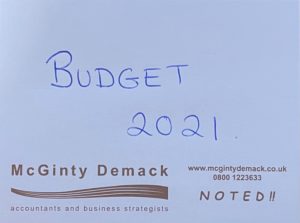Business groups welcomed the Chancellor’s Budget for protecting the economy now and kickstarting recovery from the COVID-19 pandemic.
Tony Danker, Director General of the CBI, said: ‘The Chancellor has gone above and beyond to protect UK businesses and people’s livelihoods through the crisis and get firms’ spending.
‘Thousands of firms will be relieved to receive support to finish the job and get through the coming months. The Budget also has a clear eye to the future; to ensure finances are sustainable, while building confidence and investment in a lasting recovery.’
Meanwhile, the British Chambers of Commerce’s (BCC) Director General, Dr Adam Marshall, commented: ‘The Chancellor has listened and acted on our calls for immediate support to help struggling businesses reach the finish line of this gruelling marathon and to begin their recovery.
‘Extensions to furlough, business rates relief and VAT reductions give firms a fighting chance not only to restart but also to rebuild.’
However, the Federation of Small Businesses (FSB) said that there was little in the Budget to aid job creation or help people return to work. Mike Cherry, National Chairman of the FSB, said: ‘Thousands of small businesses are on the brink of collapse and thousands more are suffering from low confidence as cash reserves dwindle.
‘The continuation of business rates and VAT discounts is critical, and it’s important that those in supply chains benefit from them, not just those that neatly fit the definitions of frontline retail, leisure and hospitality.’
Internet link: CBI press release, BCC press release, FSB press release

